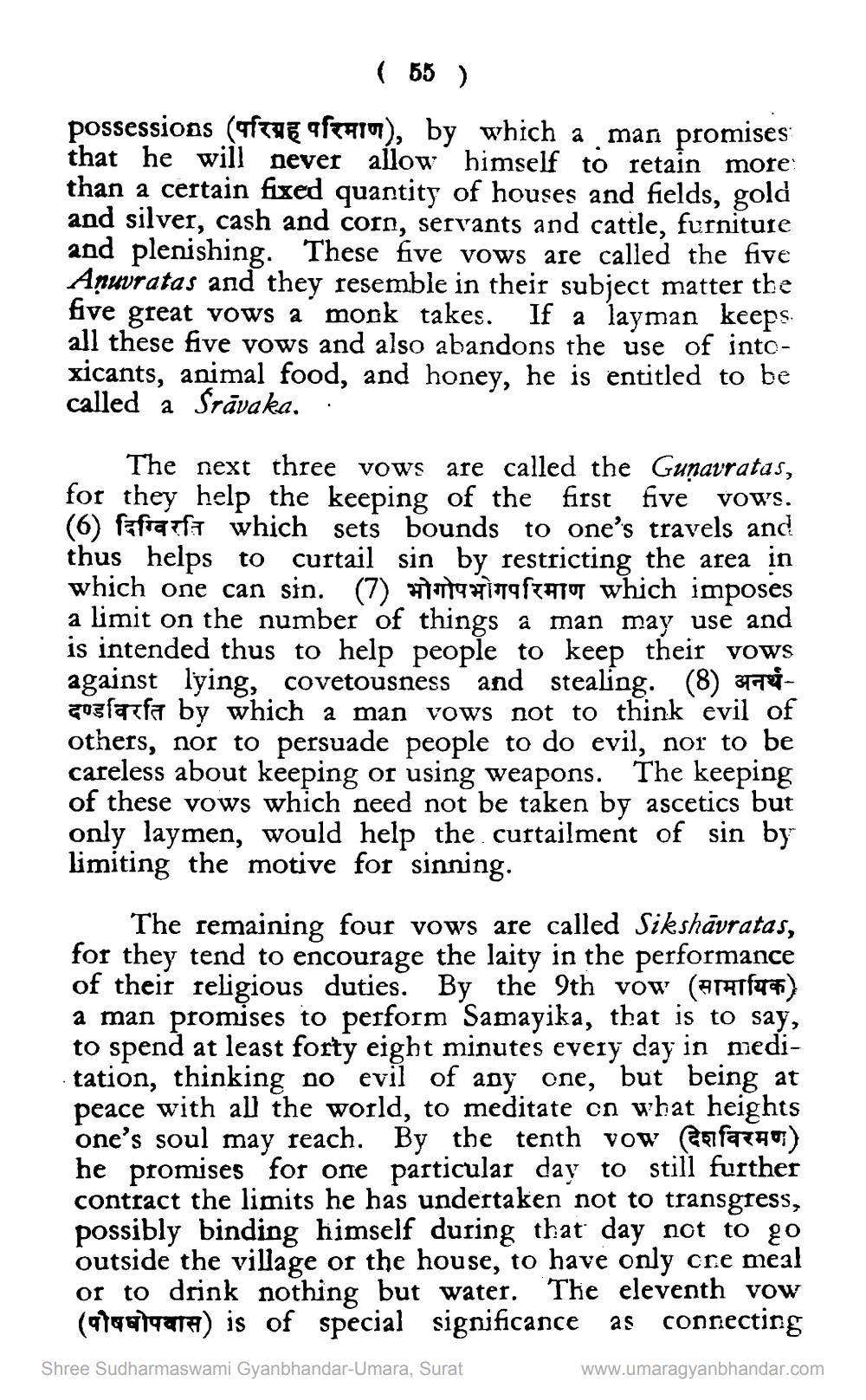________________
( 55 )
possessions (ofTAR aft ), by which a man promises that he will never allow himself to retain more: than a certain fixed quantity of houses and fields, gold and silver, cash and corn, servants and cattle, furniture and plenishing. These five vows are called the five Anuratas and they resemble in their subject matter the five great vows a monk takes. If a layman keeps. all these five vows and also abandons the use of intoxicants, animal food, and honey, he is entitled to be called a Sravaka.
The next three vows are called the Gunavratas, for they help the keeping of the first five vows. (6) fafrata which sets bounds to one's travels and thus helps to curtail sin by restricting the area in which one can sin. (7) भोगोपभोगपरिमाण which imposes a limit on the number of things a man may use and is intended thus to help people to keep their vows against lying, covetousness and stealing. (8) 37770gogíaafa by which a man vows not to think evil of others, nor to persuade people to do evil, nor to be careless about keeping or using weapons. The keeping of these vows which need not be taken by ascetics but only laymen, would help the curtailment of sin by limiting the motive for sinning.
The remaining four vows are called Sikshāvratas, for they tend to encourage the laity in the performance of their religious duties. By the 9th vow (Arafta) a man promises to perform Samayika, that is to say, to spend at least forty eight minutes every day in meditation, thinking no evil of any one, but being at peace with all the world, to meditate on what heights one's soul may reach. By the tenth vow enfatav) he promises for one particular day to still further contract the limits he has undertaken not to transgress, possibly binding himself during that day not to go outside the village or the house, to have only cre meal or to drink nothing but water. The eleventh vow
(97991901A) is of special significance as connecting Shree Sudharmaswami Gyanbhandar-Umara, Surat
www.umaragyanbhandar.com




